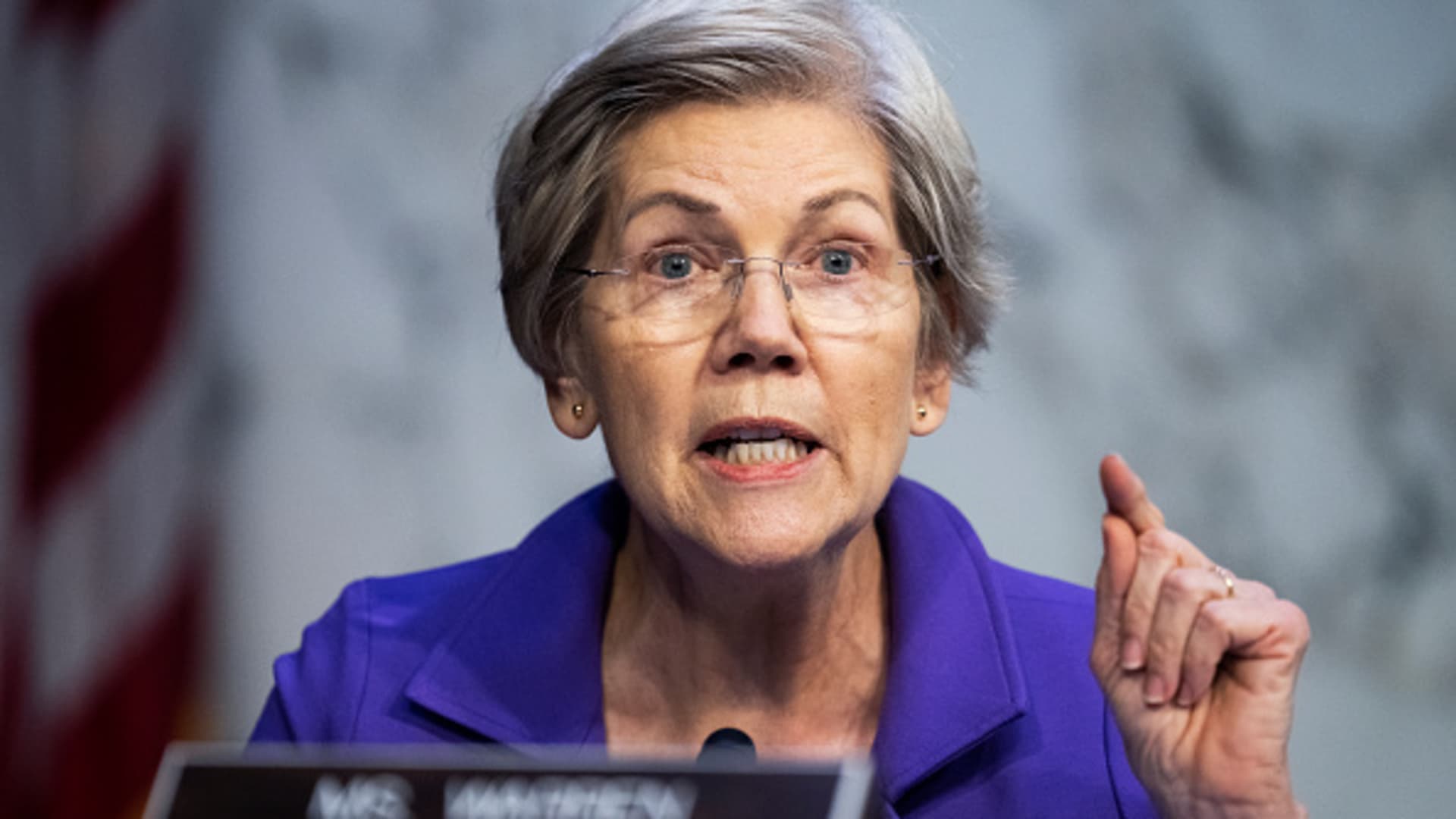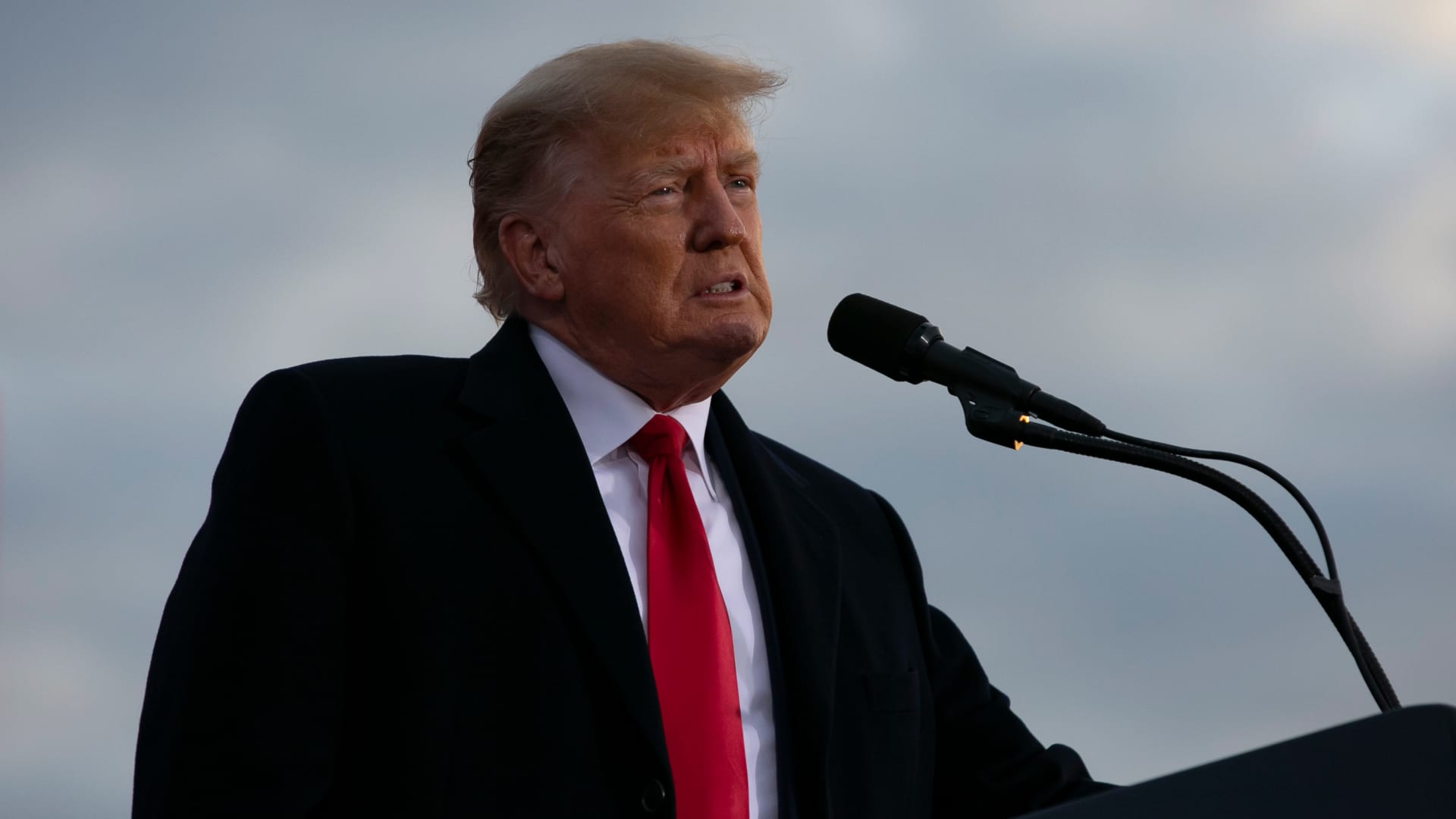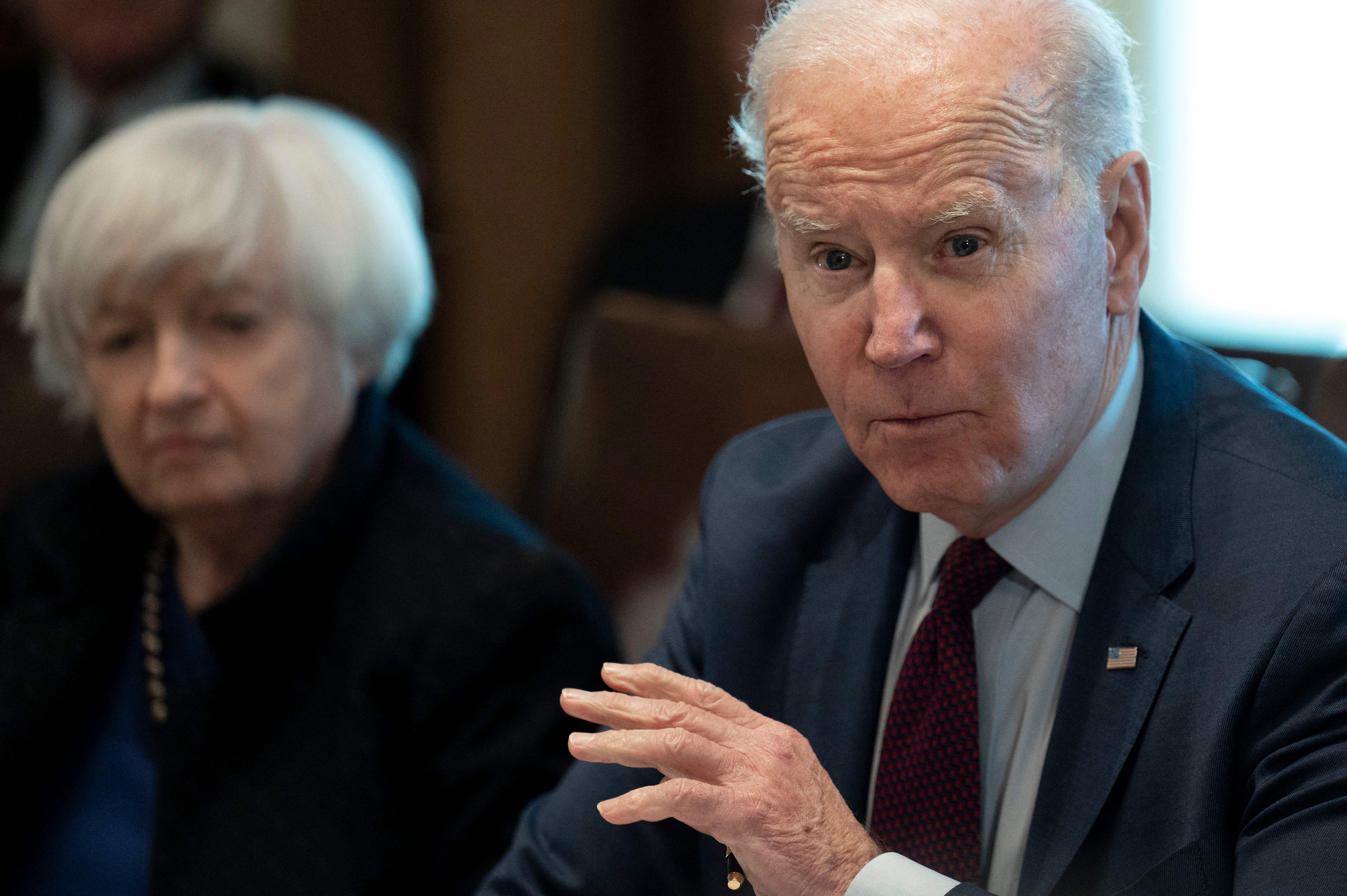Economists, activists warn lawmakers of looming debt default if Congress cannot agree to raise the debt ceiling
Experts testified to lawmakers about the economic dangers of allowing the government to default on its debt obligations

Sen. Elizabeth Warren, D-Mass., questions Treasury Secretary Janet Yellen during the Senate Banking, Housing, and Urban Affairs Committee hearing on May 10, 2022.
Tom Williams | Reuters
WASHINGTON — A Senate subcommittee on the Banking, Housing and Urban Affairs Committee heard from witnesses Tuesday about the consequences of not raising the $31.4 trillion debt limit amid a stalemate between Republican lawmakers and the White House over a bill that would allow the federal government to continue to pay its debt obligations.
A new report released by financial services company Moody's Analytics, which outlines alternatives to a debt-limit bill, was a key feature of the hearing of the Subcommittee on Economic Policy. Mark Zandi, chief economist at Moody's, said an impending default would "be a catastrophic blow to the already fragile economy."
"Global financial markets and the economy would be upended, and even if resolved quickly, Americans would likely pay for this default for generations, as global investors would rightly believe that the federal government's finances have been politicized and that a time may come when they would not be paid what they are owed when owed it," Zandi said in opening remarks released before the hearing.
The Moody's analyst also said that a Republican budget proposal to include large spending cuts with the goal of decreasing fiscal spending to 2022 levels over 10 years would prompt a recession next year and result in as much as 2.6 million jobs lost.
"Since Republicans have stated there will be no tax increases, and Social Security and Medicare benefits will remain untouched, to achieve a balanced budget would likely mean all but the elimination of nondefense discretionary spending and the Medicaid program," he said. "Given the dramatic reduction in government spending in this scenario and the already fragile economy, the economy suffers a recession in 2024. The economy's long-term growth prospects are also meaningfully diminished given the severe fiscal restraint."
Some Republican members of Congress, led by House Speaker Kevin McCarthy, R-Calif., are holding out on a debt ceiling agreement for negotiations with the White House over budget priorities, but the U.S. Treasury Department will exhaust all temporary measures to delay default between July and September unless lawmakers raise the debt ceiling, the Congressional Budget Office has warned.
As time runs out, a growing number of lawmakers are weighing the Treasury's ability to avoid a debt-limit breach by prioritizing payments to Treasury bondholders, according to the report. Analysts called the solution "badly misguided."
"It would be challenged in the courts," Zandi said of the workaround. "Bond investors, unsure of how this legal uncertainty would be resolved would demand a much higher interest rate in compensation. Moreover, politically, it seems unimaginable that bond investors, that includes many foreign investors, would get their money ahead of American seniors, the military, or even the federal government's electric bill for long."
Douglas Holtz-Eakin, president of the American Action Forum, a right-leaning fiscal policy organization, told the senators that the U.S. will effectively hand economic power to China if it defaults on its debt and endangers its international creditworthiness.
"The notion that we could give up the creditworthiness of the Treasurys and have the world stand by and not go find another reserve currency is missing the big point," Holtz-Eakin said. "They would, and then we'd be handing that opportunity to China. And at this juncture, there's no reason to do that."
In his opening remarks, Holtz-Eakin also said that skirting default would have "serious and adverse economic effects."
"It would lead to reductions in stock prices, reducing the wealth of many taxpayers. It would reduce economic confidence, which in turn could reduce consumer spending. It would increase interest rates, leaving taxpayers on the hook for billions of dollars of interest payments. And it would increase the odds of an accidental default," he said.
Sen. Elizabeth Warren, chair of the economic policy subcommittee, compared the Republican pushback on the debt-limit decision to refusing to pay a credit card bill.
"The House Republicans have decided to use the debt ceiling to hold our government and our economy hostage, the Massachusetts Democratic senator said during the hearing.
"They are demanding massive cuts in government spending, investments in the American economy, investments in American workers, or they won't allow the United States to pay the debts that it has already incurred, you know, a little like running up a bill on the credit card and then declaring that your new budget plan is: We're not going to pay the bill on the credit card."
"House Republicans don't seem concerned about the upcoming debt limit deadline," Warren said in her opening remarks. "Instead, they seem downright thrilled to have an opportunity to use it as leverage to demand tax cuts for billionaires and giant corporations."

 Hollif
Hollif 































